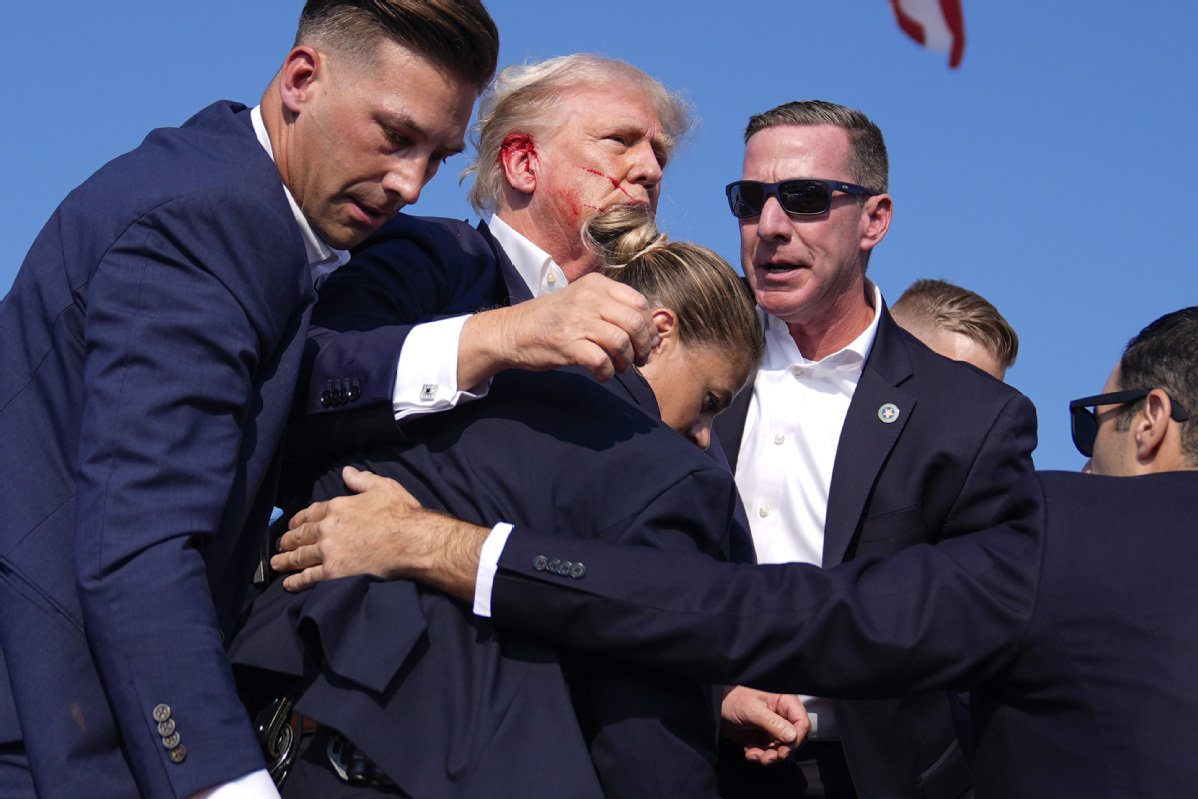US leaders should reflect on their hate speeches


The assassination attempt on former US president Donald Trump at a campaign rally in Butler, Pennsylvania, on Saturday has shocked the United States and the world, triggering calls from US political leaders, including President Joe Biden, to shun political violence and calm down.
However, the unfortunate assassination attempt on Trump came as no surprise given the heightened tensions between the two US political parties and their incessant attacks and hate speeches against each other.
According to a survey by Morning Consult on Monday, three in five voters said political rhetoric was responsible for the toxic political environment that led to the attack on Trump. Specifically, 38 percent of the respondents said Trump is to blame for the current toxic atmosphere in the US, while 31 percent blamed the Republican Party, 35 percent the Democratic Party and 29 percent Biden for the unfortunate incident on Saturday.
Under pressure, Biden admitted on TV that it was a mistake on his part to say it's "time to put Trump in the bullseye". Biden's tweets on X(formerly Twitter) a few days before the attack were also quite vicious. Lest we forget, Trump, too, is notorious for using inflammatory rhetoric to attack opponents.
Political violence has become common in the US. In 2011, Democrat congresswoman Gabrielle Giffords of Arizona survived an assassination attempt after being shot in the head outside a grocery store. And in 2017, House Republican whip Steve Scalise of Louisiana was critically injured after being shot at a charity baseball game in Virginia.
These are just two of the many political violent incidents which occurred during my stay in the US from 2009 to 2018.
While political hatred worries many Americans, the hate speeches US political leaders give on the global stage, including against countries such as China, Russia, Iran and the Democratic People's Republic of Korea, deserve closer scrutiny.
The use of McCarthyist hate rhetoric against some countries and their leaders has sadly become a favorite sport for US politicians as they seek to attract more voters to their side. This is especially true during the US presidential campaign when candidates try to act tough.
"Pure thug" and "murderous dictator "are just two of the terms Biden used to refer to the Russian president despite the sharp criticism he has drawn at home and abroad for the role the US has been playing in Israel's brutal offensive against Palestinians in the Gaza Strip for the past nine months.
Americans are disappointed with their political leaders. As many as 72 percent of the respondents to a Pew Research Center survey released on July 10 said the US used to be a good example of democracy, but it isn't anymore.
US politicians may not know that fueling misunderstanding and hatred among countries and peoples is a much more dangerous game than the slanging match between the Republicans and Democrats, because the entire world has to face the negative consequences of these hate speeches.
The hate speeches by US political leaders are pushing the world closer to a new Cold War, even a hot war.
US Senator Joe Manchin, an independent from West Virginia, issued a statement immediately after the attack on Trump, warning against the toxic political environment in the US and ruing that "politics has become a race to the extremes".
"But nothing good has ever come from hate," Manchin said, adding that the main reason he became an independent is that both the parties have failed to drive sense in the majority of Americans.
This should be a wake-up call for not only US leaders, officials and politicians but also the international community, especially because the US leaders are using hate rhetoric to demonize other countries in a bid to divide the world and consolidate the US' hegemony.
The author is chief of China Daily EU Bureau based in Brussels.
chenweihua@chinadaily.com.cn
































